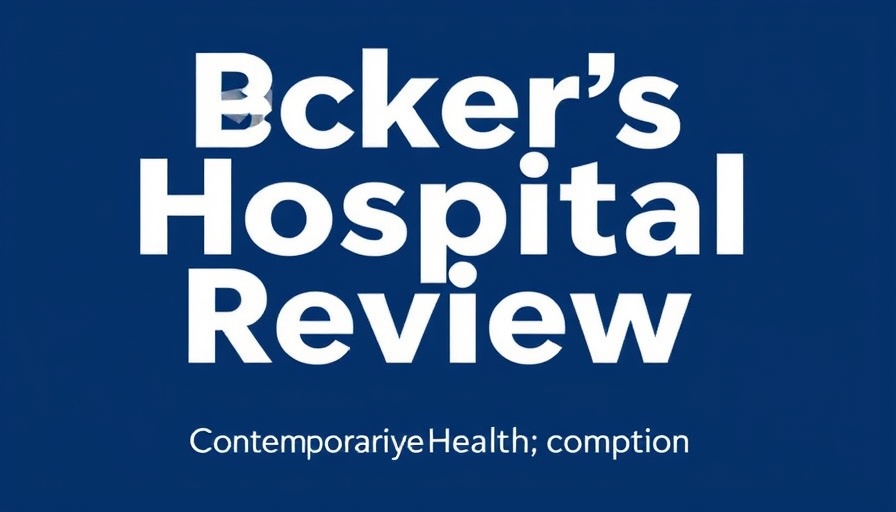
Revolutionizing Cancer Treatment: AI's Role in Radiology
In a groundbreaking advancement, GE Healthcare has unveiled new artificial intelligence (AI) tools at the Estro 2025 Congress that promise to transform the workflow in radiology, particularly in cancer treatment planning. The launch includes an innovative deep learning model known as MR Contour DL, which is designed to enhance the precision and efficiency of radiation therapy.
What is MR Contour DL?
This cutting-edge technology leverages deep learning algorithms to accurately segment 37 distinct organs within the head, neck, and pelvic regions based on MR images. This capability is monumental; it ensures that doctors can swiftly and accurately pinpoint the areas that require treatment, ultimately leading to improved patient outcomes.
A Holistic Approach to Radiotherapy
In addition to MR Contour DL, GE Healthcare plans to incorporate Spectronic Medical AB’s MRI Planner software into its portfolio. This software enables seamless transitions from MR images to synthetic CT images, paving the way for MR-only radiotherapy workflows. Such integrations emphasize a commitment not only to enhance technical capabilities but also to ensure a smoother, patient-centric experience.
Understanding the Implications
The integration of AI tools in radiology not only streamlines workflows but also plays a critical role in supporting healthcare providers. As healthcare professionals, including independent physicians and nurse practitioners, embrace this technology, they stand to benefit from improved efficiency and accuracy in diagnostics and treatment planning. For practitioners navigating reimbursement challenges, such as Medicare-backed services, the adoption of advanced AI tools can help optimize practice revenue and reduce costs associated with patient care.
AI Tools and Healthcare Automation
With increasing demands for efficiency, healthcare automation tools—including voice AI agents and practice automation solutions—are becoming critical components of modern healthcare environments. By automating tasks such as billing recovery and scheduling, providers can focus more on patient care rather than administrative burdens. These tools allow for better medical staff retention and training as well, as they enhance workplace satisfaction by reducing repetitive tasks.
Patient Engagement: The Power of Technology
Implementing AI-driven patient engagement tools helps foster a more communicative and efficient healthcare process. For example, AI phone agents handle common patient inquiries, allowing healthcare staff to dedicate more time to hands-on patient care. This aligns with the healthcare industry's shift toward telehealth services and remote therapeutic monitoring (RTM) programs, which are particularly beneficial in an era where follow-ups can greatly influence treatment outcomes.
Looking Ahead: Future Trends in Radiology
As AI continues to evolve, we expect to see further integration into various healthcare sectors. Innovations will likely enhance not just radiology workflows but also extend into medication management and pharmacy profitability, particularly as independent pharmacies begin leveraging new technologies for greater operational efficiency.
Conclusion: Embracing Change for Better Health Outcomes
As healthcare practitioners, it is imperative to stay abreast of emerging technologies such as AI tools. In doing so, you'll not only optimize your practice’s revenue but also contribute to an improved patient care experience. Especially for independent practices and healthcare providers, adopting these advanced tools can help mitigate the challenges tied to insurance underpayments and coverage complexities.
As we move towards a more digitized healthcare landscape, embracing these advancements will empower both professionals and patients alike. Are you ready to explore how technology can elevate your practice? Start integrating AI solutions today to ensure that you are moving forward in the ever-changing healthcare environment.
 Add Row
Add Row  Add
Add 




 Add Row
Add Row  Add
Add 

Write A Comment